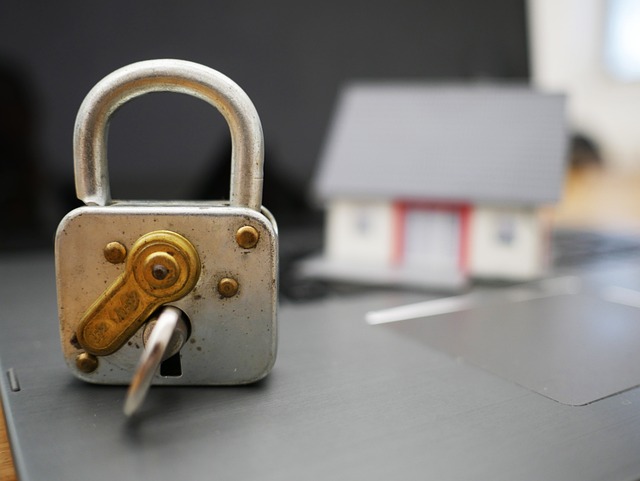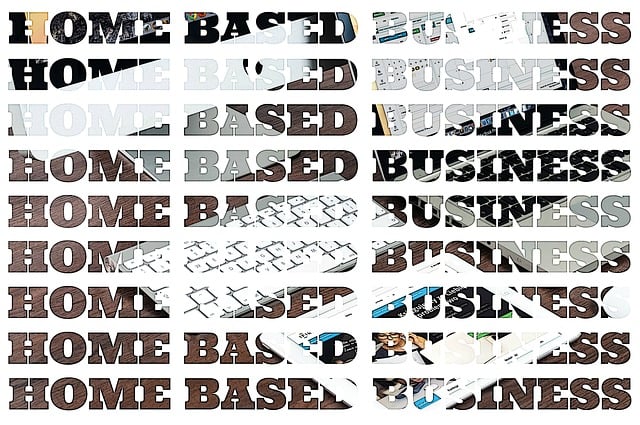Running a home business comes with unique risks, requiring proactive risk management through tailored insurance policies. These policies protect against property damage, liability claims, and business interruptions, ensuring continuity and peace of mind. Essential coverage includes general liability, property, and business interruption insurance, addressing challenges like accidents, cyberattacks, and data breaches. Regular policy reviews ensure alignment with changing business needs, safeguarding investments and operations. By prioritizing Insurance Policies for Home-Based Businesses, entrepreneurs can mitigate financial risks, foster growth, and maintain a secure operating environment.
In today’s digital era, many professionals are opting for home-based work, presenting unique challenges in risk management. Effective Home Business Risk Management is crucial for ensuring stability and financial security. This article guides you through navigating this intricate landscape. We’ll explore essential strategies like identifying risks specific to home offices, the pivotal role of insurance, and various policy types tailored for these setups. By understanding coverage options and crafting a robust risk management plan, businesses can thrive with peace of mind.
Understanding Home Business Risk Management

Home Business Risk Management is a crucial aspect for entrepreneurs who operate their ventures from their residences. It involves identifying, assessing, and mitigating potential risks specific to this unique business setup. Unlike traditional offices, home-based businesses face distinct challenges, such as the blurring of work-life boundaries and the potential for personal assets to be mixed with business ones. This requires a tailored approach to risk management.
One critical component is securing appropriate insurance policies for home-based businesses. These policies protect against various risks, including property damage or loss, liability claims from customers or visitors, and coverage for business equipment and inventory. By understanding the specific risks associated with their operations, business owners can make informed decisions when choosing insurance plans, ensuring they have adequate protection in place to safeguard their investments and maintain continuity in their home-based enterprise.
Identifying Potential Risks for Home-Based Businesses

Running a home business presents unique challenges and risks that require proactive management. The first step in effective risk mitigation is identifying potential hazards specific to this environment. Unlike traditional offices, home businesses often lack formal structures and policies, making them vulnerable to various perils. These may include accidents on premises, damage to personal property, liability from third-party visitors, cyberattacks, and business interruption due to unforeseen events. Understanding these risks is crucial when considering insurance policies for home-based businesses, as it enables owners to tailor their coverage accordingly.
Regular assessments of your workspace, equipment, and operations are essential. For instance, evaluating the electrical system, fire hazards, and potential slips or trips can help identify areas needing improvement. Additionally, staying informed about industry regulations and trends ensures compliance and reduces legal risks. By proactively identifying and managing these risks, home business owners can create a safer, more secure environment for their operations, thereby fostering long-term success.
The Role of Insurance in Risk Mitigation

Insurance plays a pivotal role in risk management for home-based businesses, offering financial protection against unforeseen events and potential losses. Tailored insurance policies are designed to safeguard various aspects of an operation conducted from home, including liability, property damage, and income interruption. For instance, general liability insurance covers legal expenses and damages if a client or visitor is injured on the premises, while property insurance protects against theft, vandalism, or natural disasters that could destroy business assets.
Business owners should consider comprehensive insurance packages that include key coverage areas such as workers’ compensation to protect against employee-related injuries, and business interruption policies that provide income stability during unforeseen downtime. By prioritizing suitable Insurance Policies for Home-Based Businesses, entrepreneurs can mitigate financial risks, ensuring business continuity and peace of mind in an often unpredictable landscape.
Types of Insurance Policies for Home Offices

When it comes to insuring your home office, there are several specialized insurance policies designed to protect your business and its assets. These policies cater to the unique risks associated with working from home, offering coverage for equipment, liability, and even specific circumstances like data breaches or cyberattacks. Business owners should consider obtaining commercial property insurance, which covers the physical space where their operations take place, including any necessary repairs or replacements after damage or theft of business-related items.
Additionally, general liability insurance is crucial to shield against claims of bodily injury or property damage that may occur on your premises. This policy protects you from financial loss in case a client, employee, or visitor suffers an accident or experiences property damage while at your home office. Moreover, professional liability insurance, also known as errors and omissions coverage, safeguards against claims related to negligence, mistakes, or oversights in your work that result in financial loss for a client.
Coverage Options and Their Importance

When running a home business, it’s crucial to consider various risks and have adequate protection in place. Insurance policies for home-based businesses are designed to mitigate financial losses and provide peace of mind. These policies offer specialized coverage tailored to the unique needs of remote entrepreneurs. From general liability insurance that protects against customer claims to property insurance covering damages to your workspace, these measures ensure you’re prepared for unexpected events.
Specific coverage options may include business interruption insurance, which provides funds during temporary closures due to insured events, and professional liability insurance, crucial for businesses offering services, guarding against negligence claims. By exploring these insurance policies for home-based businesses, owners can safeguard their investments, assets, and future prospects, ensuring a more secure operating environment.
Creating a Comprehensive Risk Management Plan

Creating a comprehensive risk management plan is a vital step for any home business owner looking to protect their venture and ensure its longevity. This process involves identifying potential risks specific to your operation, evaluating their likelihood and impact, and implementing strategies to mitigate or manage them effectively. A well-structured plan should encompass various aspects, from financial protection through insurance policies for home-based businesses to data security measures and contingency planning for operational disruptions.
One critical component is assessing the risks associated with your industry and location. For instance, if you run a catering business, consider food safety regulations and liability for any incidents related to your services. Insurance policies tailored for home-based businesses can offer financial safeguards against such events, providing peace of mind and ensuring your venture remains resilient in the face of unforeseen challenges.
Regularly Review and Update Your Policy

Regular reviews and updates of your insurance policies are essential components of effective home business risk management. As your home-based business evolves, so too do its risks. New products, services, or even changes in your work environment can introduce unforeseen perils that your existing policy may not adequately cover. Therefore, it’s crucial to reassess your coverage at least annually to ensure you have the appropriate limits and provisions for your current operations.
Staying current with industry standards and best practices for insurance policies for home-based businesses will help protect your investment, maintain continuity, and safeguard against financial losses. Don’t wait until an incident occurs to discover gaps in your coverage; proactively updating your policy can offer peace of mind and significant savings should a claim arise.
Case Studies: Successful Risk Management Strategies

Successful risk management strategies for home businesses often involve tailored insurance policies that address unique challenges faced by entrepreneurs operating out of their residences. Case studies highlight the importance of comprehensive coverage, including general liability insurance to protect against third-party injuries or property damage, and professional liability insurance for services rendered. For example, a graphic designer working from home may benefit from specific coverage for digital assets and intellectual property protection.
Additionally, business interruption insurance is crucial for covering lost revenue during unexpected events like natural disasters or health crises that require closing operations temporarily. Home businesses with employees should also consider workers’ compensation insurance to protect against claims related to on-the-job injuries. These strategic measures demonstrate a proactive approach to risk management, enabling home-based entrepreneurs to focus on growth while minimizing potential financial setbacks.
